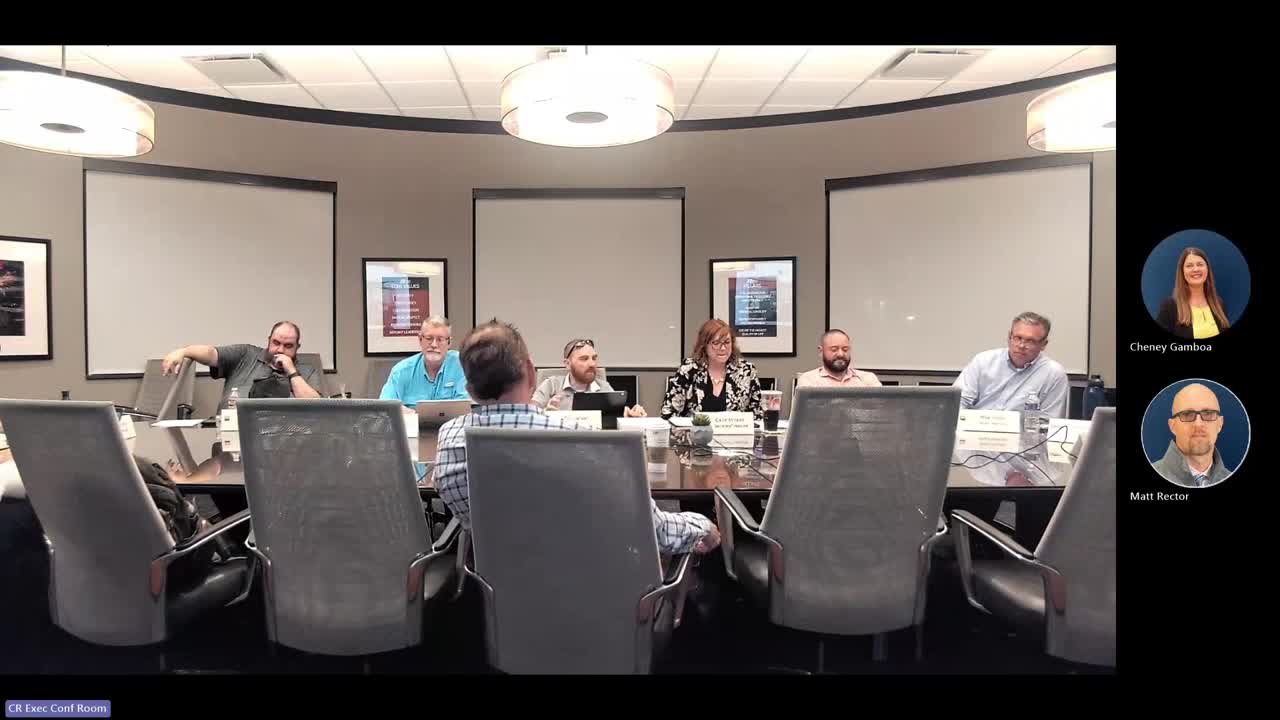EDC authorized to develop documents for managing select CIP projects to speed delivery; board emphasizes transparency and performance conditions
Get AI-powered insights, summaries, and transcripts
Subscribe
Summary
After extended debate about procurement options and contractor performance on recent road and utility projects, the Hutto EDC board voted to direct legal staff to draft agreements that would allow the corporation to manage certain capital improvement projects with private‑sector contract terms and performance incentives.
Board members debated whether the Hutto Economic Development Corporation should take a larger role in managing city capital improvement projects to accelerate delivery and to add stronger performance remedies in construction contracts.
Supporters said using the EDC’s corporate authority could reduce procurement friction and allow the city to include private‑sector performance provisions and liquidated damages that a municipality cannot easily impose. Counsel and staff discussed options including per‑project administrative agreements, a master services agreement, or development of a formal EDC program that sets approval conditions and reporting requirements. The city’s contract attorney (referenced in the meeting as Chapman) was identified as available to review contract language and advise on enforceability.
Board members who opposed bypassing public bidding emphasized the public transparency concern and said they would not support a no‑bid process; other members said the objective was not to hide information but to create procurement documents that attract more experienced contractors and that include measurable performance clauses. Staff and board members discussed piloting the approach with three near‑term projects already identified as high priority for development impact: the Brushy Creek wastewater project, a roundabout and connector road around CR 137/1660 and the Live Oak extension, and a major wastewater interceptor serving the Exchange/Ed Schmidt corridor. The board urged staff to prioritize projects that are time‑sensitive and already designed or near construction.
After discussion the board voted 7–0 to direct EDC legal counsel, subject to city council approval, to draft the administrative agreements and program language described in the meeting and to develop funding flow arrangements (motions by Board member Snyder; second by Board member Porterfield). Members said the drafts should preserve public disclosure of contract documents and allow city council approvals on expenditures.
Board members requested that staff return with project‑specific documentation including a factual basis linking each eligible CIP to economic development benefits (for example, a road or sewer project that enables a named commercial development), estimated project costs and proposed funding sources. Staff said they would work to show how an EDC‑managed delivery could be structured without obscuring competitive opportunity or public access to procurement records.
The board did not approve any specific project contract at the meeting; the vote authorized legal staff to prepare documents for later council consideration.
